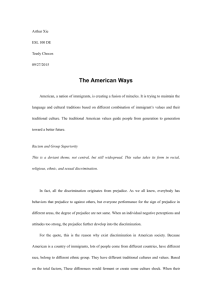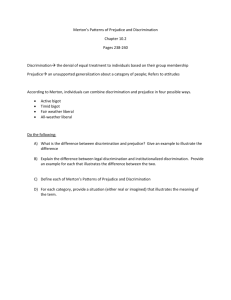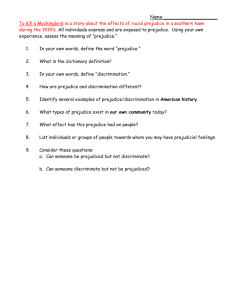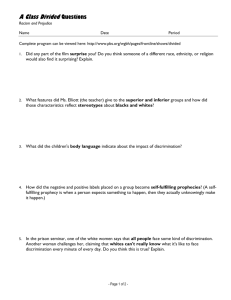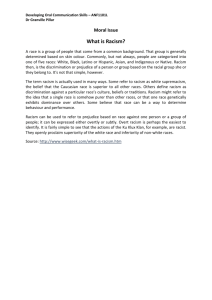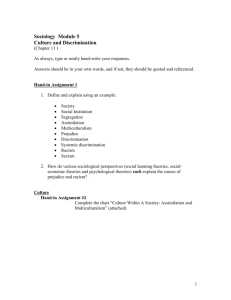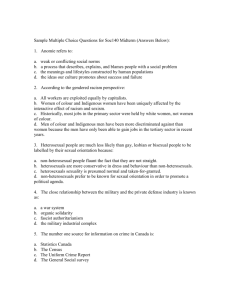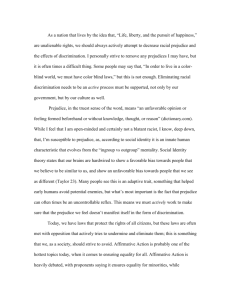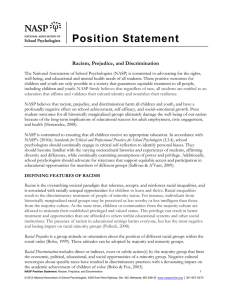NASP Position Statement on Racism, Prejudice, and Discrimination
advertisement
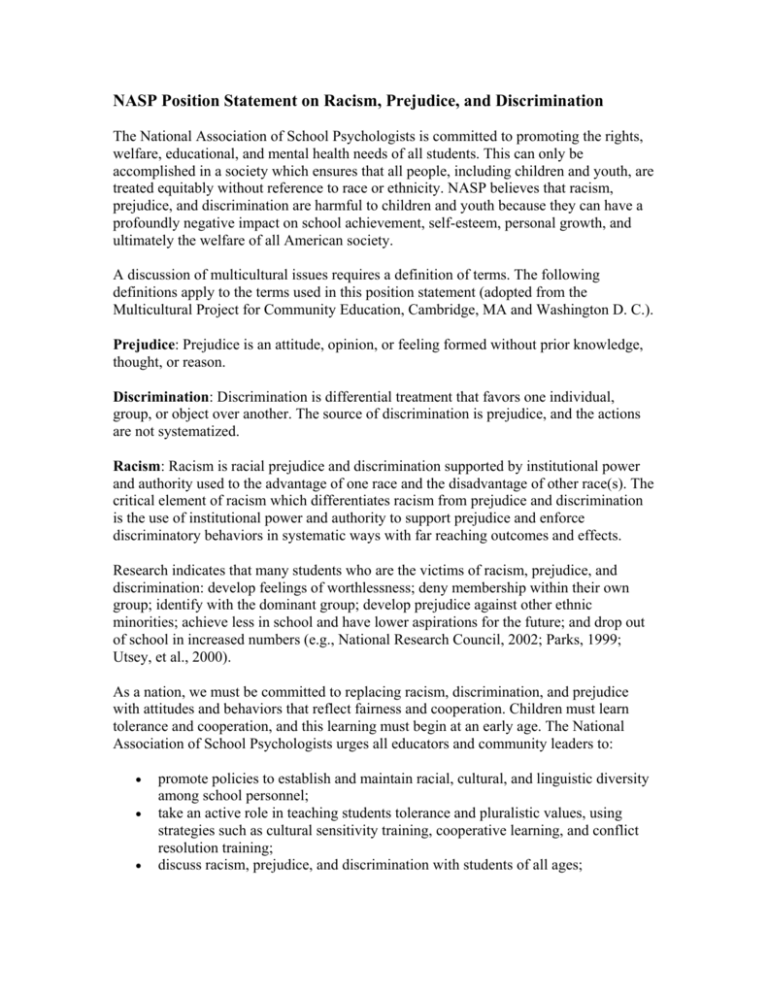
NASP Position Statement on Racism, Prejudice, and Discrimination The National Association of School Psychologists is committed to promoting the rights, welfare, educational, and mental health needs of all students. This can only be accomplished in a society which ensures that all people, including children and youth, are treated equitably without reference to race or ethnicity. NASP believes that racism, prejudice, and discrimination are harmful to children and youth because they can have a profoundly negative impact on school achievement, self-esteem, personal growth, and ultimately the welfare of all American society. A discussion of multicultural issues requires a definition of terms. The following definitions apply to the terms used in this position statement (adopted from the Multicultural Project for Community Education, Cambridge, MA and Washington D. C.). Prejudice: Prejudice is an attitude, opinion, or feeling formed without prior knowledge, thought, or reason. Discrimination: Discrimination is differential treatment that favors one individual, group, or object over another. The source of discrimination is prejudice, and the actions are not systematized. Racism: Racism is racial prejudice and discrimination supported by institutional power and authority used to the advantage of one race and the disadvantage of other race(s). The critical element of racism which differentiates racism from prejudice and discrimination is the use of institutional power and authority to support prejudice and enforce discriminatory behaviors in systematic ways with far reaching outcomes and effects. Research indicates that many students who are the victims of racism, prejudice, and discrimination: develop feelings of worthlessness; deny membership within their own group; identify with the dominant group; develop prejudice against other ethnic minorities; achieve less in school and have lower aspirations for the future; and drop out of school in increased numbers (e.g., National Research Council, 2002; Parks, 1999; Utsey, et al., 2000). As a nation, we must be committed to replacing racism, discrimination, and prejudice with attitudes and behaviors that reflect fairness and cooperation. Children must learn tolerance and cooperation, and this learning must begin at an early age. The National Association of School Psychologists urges all educators and community leaders to: • • • promote policies to establish and maintain racial, cultural, and linguistic diversity among school personnel; take an active role in teaching students tolerance and pluralistic values, using strategies such as cultural sensitivity training, cooperative learning, and conflict resolution training; discuss racism, prejudice, and discrimination with students of all ages; • • • provide students with an opportunity to learn about culturally, ethnically, and linguistically diverse groups; promote and employ curricula which give students the opportunity to explore issues of self identity; and develop programs for all students designed to promote self-respect and respect for others. Role of the School Psychologist As mental health professionals, school psychologists must understand the effects of racism, discrimination, and prejudice, how they impact their professional work, and how they affect every facet of the lives of children and adults in America. NASP supports all efforts, at both a pre-service and in-service level, to ensure that the practice of school psychology is informed by this knowledge and understanding. NASP believes that school psychologists have a critical role to play in making schools culturally sensitive environments and directly supports this endeavor through the NASP Minority Scholarship; the promotion of racially, culturally, and linguistically sensitive training standards; the promotion of culturally competent practice; and through the Tolerance-inAction campaign. Ultimately, the welfare of all students and our nation is at stake. References National Research Council. (2002). Minority students in special and gifted education (M.S. Donovan & C. T. Cross, Eds.). Washington DC: National Academy Press. Parks, S. (1999). Reducing the effects of racism in schools. Educational Leadership, 56(6), 14-18. Utsey, S.O., Ponterotto, J.G., Reynolds, A.L., Cancelli, A A. (2000). Racial discrimination, coping, life satisfaction, and self-esteem among AfricanAmericans. Journal of Counseling and Development, 78(1), 72-80. Originally adopted by NASP Delegate Assembly, April, 1993. Revision adopted by NASP Delegate Assembly, April 2004 Adopted by the CASP Board of Directors March 7, 2007. © 2004 National Association of School Psychologists, 4340 East West Highway, Suite 402, Bethesda MD 20814 - 301-657-0270. Please note that NASP periodically revises its Position Statements. We encourage you to check the NASP website at www.nasponline.org to ensure that you have the most current version of this Position Statement.

